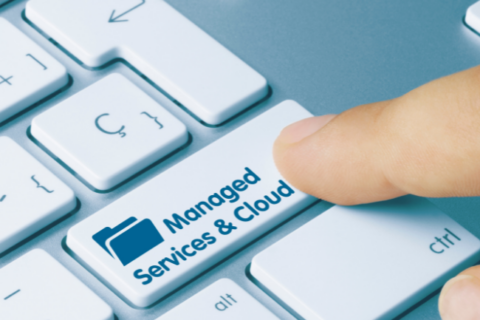Choosing Network Monitoring Systems & Providers
To ensure that a business network is running optimally, many businesses utilize network monitoring systems. But, there are many questions that arise when choosing network monitoring systems or providers. Should you perform these tasks internally or outsource it? What type of network monitoring systems, providers, and tools are best for your network configuration? How do your network monitoring systems integrate or support your cyber security plan? Most importantly, how do you choose the network monitoring systems that are right for your business? We’ll explore these questions in further detail right now.
Why Do You Need Network Monitoring?
Many employees are working offsite, using public or private wifi, or accessing your network with mobile devices. Every one of these endpoints provides an opportunity for an attack so endpoint security is an important consideration. Cybercriminals are looking for any small gap to enter your system and release a virus or capture your data. Effective network monitoring can often detect any attempt to hack into your systems, before they cause havoc.
Network Monitoring Systems Explained
Network monitoring systems can track networks and their operations using various software and hardware tools. Importantly, they do so in real-time and include warning systems that notify network administrators of any problems occurring.
Network monitoring systems are checking for errors and problems and constantly testing for optimized network speed and functionality. Network monitoring systems can also track devices connected to the network, subcomponents, and other systems around the network.
Standard functions of a network monitoring system are:
- Traffic analysis
- Bandwidth utilization
- Alerting for connection failures
- Identifying traffic bottlenecks
- Addressing all issues limiting data flow
The Benefits Associated With Network Monitoring
Network monitoring is a vital function – Let’s take a look at the many reasons for this.
Network Transparency
One of the most significant benefits of network monitoring is that analysts can have an unfiltered and clear view of the total connected devices in the network. They can also gauge how data is flowing through and among devices. Importantly, it also allows them to fix any problems interfering with the functions and ultimately negatively affecting the business’s operations.
Increased Range of Monitoring
Companies, especially larger ones, have many internet-based critical services that they use for a variety of business functions. Examples include VPNs, UCaaS, CDNs, ISPs, and many more.
Since these services operate online, they will be affected by potential network problems. Therefore, detecting issues in network connections will help business owners and managers identify problems that could potentially affect employees and clients.
IT Resource Optimization
While network monitoring tools include hardware and software, they drastically decrease the workload for IT operators and IT teams.
Since many manual and repetitive monitoring functions are being overseen by network monitoring, highly trained IT experts have more time to head up projects and work strategically.
Ultimately, the freeing up of these valuable employees is excellent for productivity and is one of the most significant benefits of network monitoring.
Early Infrastructure Warning System
Network monitoring systems don’t only provide a massive benefit for real-time analysis and problem-solving. They also create reports which can tell the analyst how the networks have performed over specific periods.
Network administrators study these reports and look at specific trends, which can act as an early warning system for significant infrastructural changes that might be needed. Being able to see this early on can save the potentially catastrophic consequences of infrastructural damage and save time and money.
Quick on the Draw
Finally, Network monitoring systems allow administrators to have a distinct advantage against imminent security threats. They can not only be spotted faster but can also be acted upon faster. When it comes to viruses, malware, and ransomware, working fast can be an absolute life-saver.
Regular monitoring of the networks helps administrators determine the standard data flow and procedures. Any irregular activity can be very quickly picked up and flagged. Quite often, this irregular activity is malicious, and luckily it can be isolated and sorted out promptly.
Finding The Best Solutions For Your Needs
Conscious Networks provide 24/7 network monitoring systems for business to keep your network up and running and your business profitable and protected. Many organizations with internal IT staff rely on the Conscious Networks as a more effective way to create network redundancy and tap into additional technical expertise. Our U.S. based support team provides a proactive approach to technology. Contact us today to get started!



